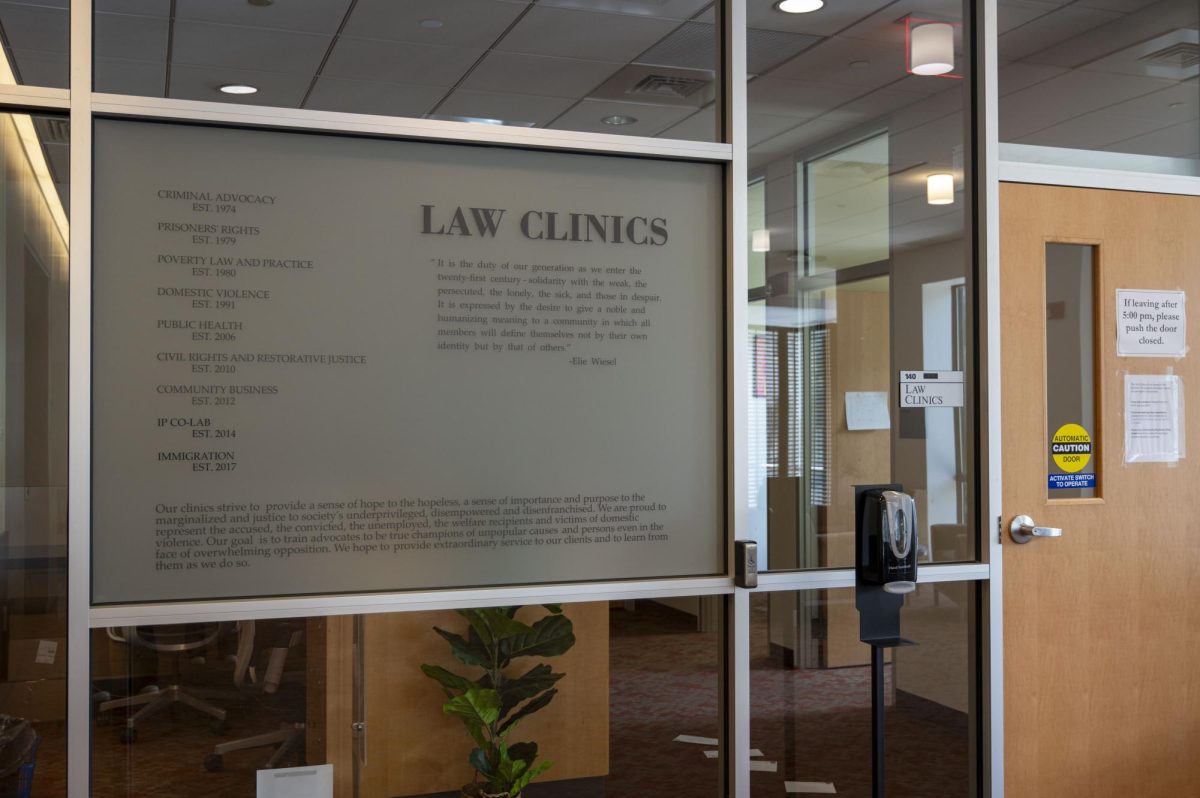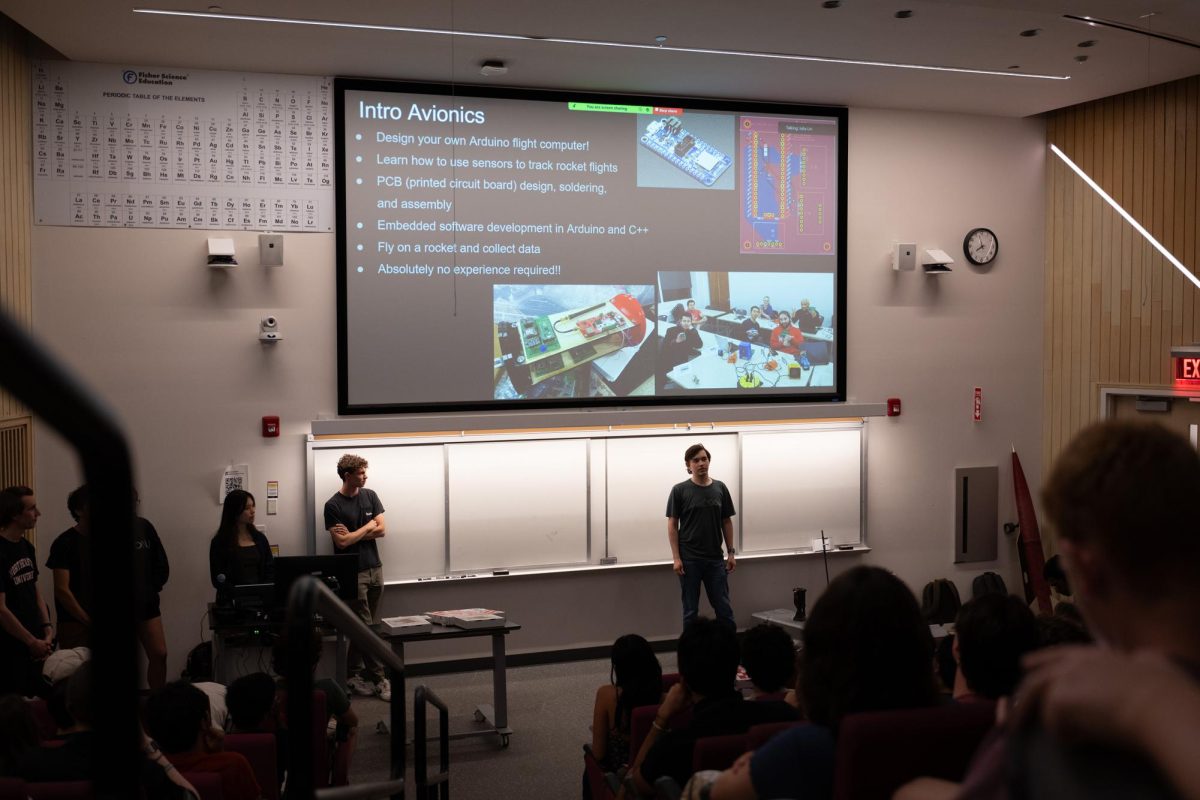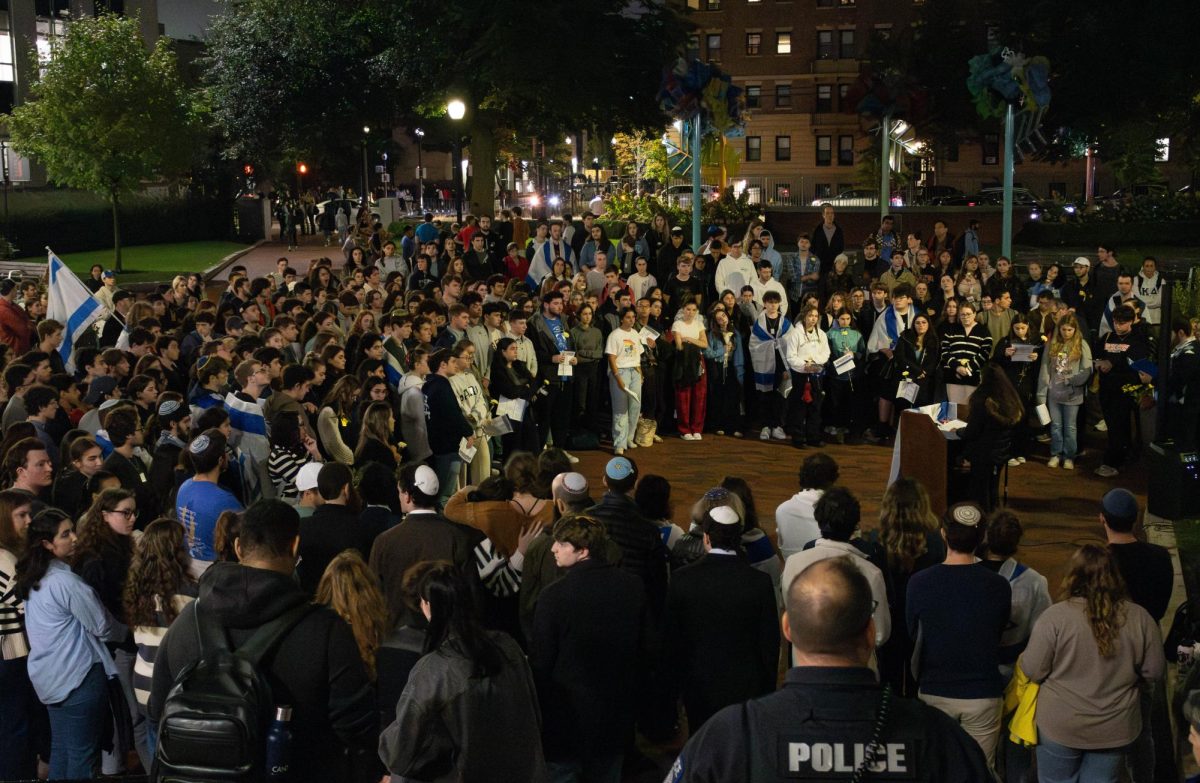By Derek Hawkins
The Foundation for Individual Rights in Education (FIRE), a non-profit organization that advocates for civil liberties in academia, recently placed Northeastern on its watch list and has argued that several of Northeastern’s policies restrict free speech on campus.
In an op-ed published May 21 in the New York Post, FIRE berated the university for enforcing campus speech codes that it said limit free expression otherwise protected by the First Amendment.
FIRE’s op-ed, authored by the organization, called the university “the self-appointed arbiter of good taste” and cited a section of the Northeastern’s Appropriate Use Policy (AUP) that prohibits the use of university facilities to transmit material “which in the sole judgment of the university is offensive.”
“Attention Northeastern students,” the op-ed read. “Before you forward that e-mail to your friends you had better try to discern whether ‘the university’ might deem it offensive.”
The AUP is a public document that contains rules and guidelines for using university information systems and is updated annually by the Information Services department.
In addition to prohibiting the exchange of “offensive, violent, pornographic, annoying or harassing” material, the policy also asserts the university’s right to monitor electronic communications, including e-mails, that take place within university information systems.
Samantha Harris, FIRE’s director of legal and public advocacy, said the vagueness of the portion of the AUP mentioned in the op-ed jeopardizes free speech on campus.
“‘Offensive’ is a very broad, general term, so it will be very difficult for students to guess at what the university might find offensive,” Harris said in an e-mail. “College is supposed to be a ‘marketplace of ideas,’ and by threatening to punish students for saying anything ‘offensive’ over e-mail, Northeastern is ‘chilling’ the free speech of its students and suppressing the free exchange of ideas.”
According to the organization’s website, in February FIRE gave Northeastern a speech code rating of “red” for having “at least one policy that both clearly and substantially restricts freedom of speech.” The website contains excerpts from the AUP’s speech codes, as well as several excerpts from the Student Handbook that deal with sexual and protected group harassment.
Information Security and Identity Services Director Glenn Hill responded to FIRE’s charges and defended the university’s policy.
“Private institutions have the right to regulate what’s done on their private property and with their possessions,” he said. “There is no legitimate interest in regulating speech. The legitimate interest of the university is determining how our resources are used. The community will regulate speech.”
In recent years there has been at least one case of censorship under the AUP.
In September 2005, university administrators ordered the student-run humor publication, The Northeastern Times New Roman (TNR), to temporarily close its website because of two articles the university deemed offensive by the AUP.
In that case, the university labeled one article offensive for its discussion of SARS, AIDS and Ebola, the other for its inappropriate language. At the university’s request, TNR posted a disclaimer warning readers of offensive material. The publication’s website was eventually restored.
Hill said portions of the AUP in question exist to protect, not restrict, academic discourse and free expression on campus, adding that the university does not read e-mails or seek out offensive material.
“We do not monitor content,” Hill said. “The AUP defends the right of academic freedom and intellectual inquiry; it defends the university’s right to exercise that.”
Students interviewed were generally skeptical of the AUP’s speech codes, but objected to the university’s ability to monitor electronic communications.
“I feel you should be able to say whatever you want and expect privacy,” middler pharmacy major Terence Moore said. “It’s kind of scary that these regulations exist.”
Abigail Smith, a middler nursing major, said she didn’t feel threatened by the university’s speech codes, but agreed that privacy was an issue.
“It would be different if they actively pursued people for making negative comments about the university,” she said. “But students should know their e-mails aren’t necessarily private.”








